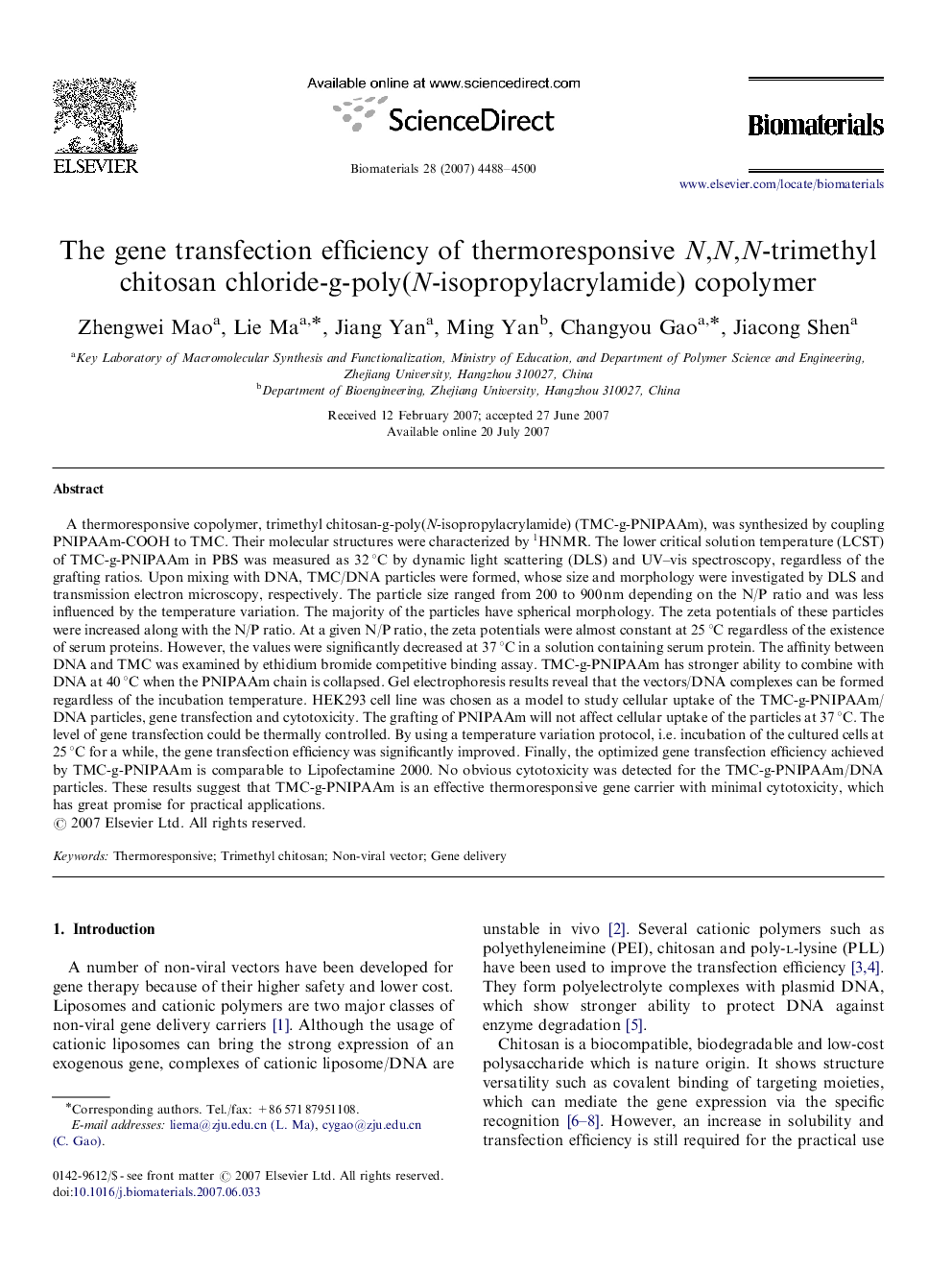| کد مقاله | کد نشریه | سال انتشار | مقاله انگلیسی | نسخه تمام متن |
|---|---|---|---|---|
| 10751 | 701 | 2007 | 13 صفحه PDF | دانلود رایگان |

A thermoresponsive copolymer, trimethyl chitosan-g-poly(N-isopropylacrylamide) (TMC-g-PNIPAAm), was synthesized by coupling PNIPAAm-COOH to TMC. Their molecular structures were characterized by 1HNMR. The lower critical solution temperature (LCST) of TMC-g-PNIPAAm in PBS was measured as 32 °C by dynamic light scattering (DLS) and UV–vis spectroscopy, regardless of the grafting ratios. Upon mixing with DNA, TMC/DNA particles were formed, whose size and morphology were investigated by DLS and transmission electron microscopy, respectively. The particle size ranged from 200 to 900 nm depending on the N/P ratio and was less influenced by the temperature variation. The majority of the particles have spherical morphology. The zeta potentials of these particles were increased along with the N/P ratio. At a given N/P ratio, the zeta potentials were almost constant at 25 °C regardless of the existence of serum proteins. However, the values were significantly decreased at 37 °C in a solution containing serum protein. The affinity between DNA and TMC was examined by ethidium bromide competitive binding assay. TMC-g-PNIPAAm has stronger ability to combine with DNA at 40 °C when the PNIPAAm chain is collapsed. Gel electrophoresis results reveal that the vectors/DNA complexes can be formed regardless of the incubation temperature. HEK293 cell line was chosen as a model to study cellular uptake of the TMC-g-PNIPAAm/DNA particles, gene transfection and cytotoxicity. The grafting of PNIPAAm will not affect cellular uptake of the particles at 37 °C. The level of gene transfection could be thermally controlled. By using a temperature variation protocol, i.e. incubation of the cultured cells at 25 °C for a while, the gene transfection efficiency was significantly improved. Finally, the optimized gene transfection efficiency achieved by TMC-g-PNIPAAm is comparable to Lipofectamine 2000. No obvious cytotoxicity was detected for the TMC-g-PNIPAAm/DNA particles. These results suggest that TMC-g-PNIPAAm is an effective thermoresponsive gene carrier with minimal cytotoxicity, which has great promise for practical applications.
Journal: Biomaterials - Volume 28, Issue 30, October 2007, Pages 4488–4500